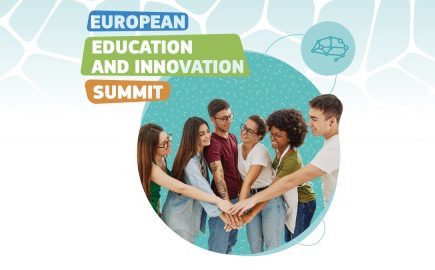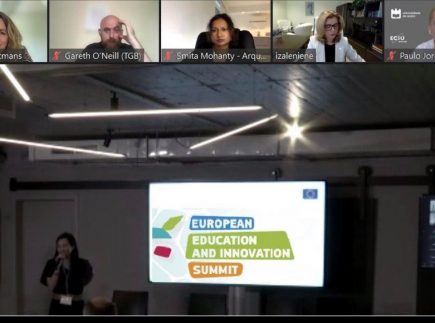
June 23rd, 2022, Mykolas Romeris University (MRU) Rector Prof. Inga Žalėnienė participated in the European Education and Innovation Summit, organized by the European Commission's Directorate-General for Education and Culture (DG EAC) in Brussels.
Opening the Forum, Mariya Gabriel, European Commissioner for Innovation, Research, Culture, Education and Youth, reviewed the role of science and innovation in Europe's future and emphasized the importance of innovative education for society's progress.
Leaders of innovative higher education institutions and businesses in the European Union, start-ups, representatives of student organizations and education policy makers invited to the forum, shared insights and experiences on how education is becoming an engine for innovation. Participants from around the world discussed how to foster creativity, entrepreneurship and professional development at all levels of education, talent development and other relevant issues related to the implementation of the European Strategy for Universities and the Innovation Agenda.
Presenting the report at a round-table discussion on attracting talent to research activities and ensuring sustainable academic career conditions, MRU Rector Prof. Žalėnienė emphasized the need to increase the motivation of the younger generation to choose an academic career, to increase the attractiveness of academic and research activities, to promote creativity, synergy between science and business, and to create favorable conditions for combining academic and research activities with family needs. The Rector shared MRU's experience in improving opportunities for education and for researchers to achieve high academic achievements, engage in practical activities and contribute to the promotion of leadership and entrepreneurship, as well as the strengthening of civil society.
"National perspectives may be driven by European direction," said Rector Prof. Žalėnienė. It is often the case that universities identify the needs. However, they are limited in action due to the fact that national funding depends on certain types of achievements and results. Scientific results are trending in academic careers. Universities may be practically ready to diversity the academic careers paths; however, national legal restrictions may hinder this possibility. The European approach would be appreciated in this regard.

